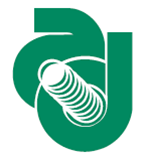Speaker
Description
In the past few years, thanks to the introduction of controlled low gain and to the optimization of the sensor design, silicon sensors have become the detector of choice for the construction of 4D trackers. Presently, both the ATLAS and CMS experiments are building large timing layers (about 20 m2) to add to their experiment the capabilities of time-tagging charge particles.
In this contribution, I will present the 4DInSiDe project that aims at developing the next generation of 4D silicon detectors characterized by a fully active detecting volume, low material budget and high radiation tolerance.
To this purpose, different areas of research have been identified, involving the development, design, fabrication and test of radiation-hard devices that guarantee to operate efficiently in the future high energy physics experiments. This has been enabled thanks to ad-hoc advanced TCAD modelling of LGAD devices, accounting for both technological issues, e.g. sensitivity of the gain layer, as well as physical aspects such as different avalanche generation models and combined surface and bulk radiation damage effects modelling. A massive test campaign has been carried out on specifically devised LGAD structures, both not irradiated and irradiated ones, fostering the validation of the development framework and the evaluation of the impact of several design options, thus orienting the sensor design and optimization before its large volume production.
This work is focused on reviewing the progress and the relevant detector developments obtained during the research activities in the framework of the Italian 4DInSiDe collaboration.
| Collaboration | Italian PRIN "4DInSiDe" |
|---|

